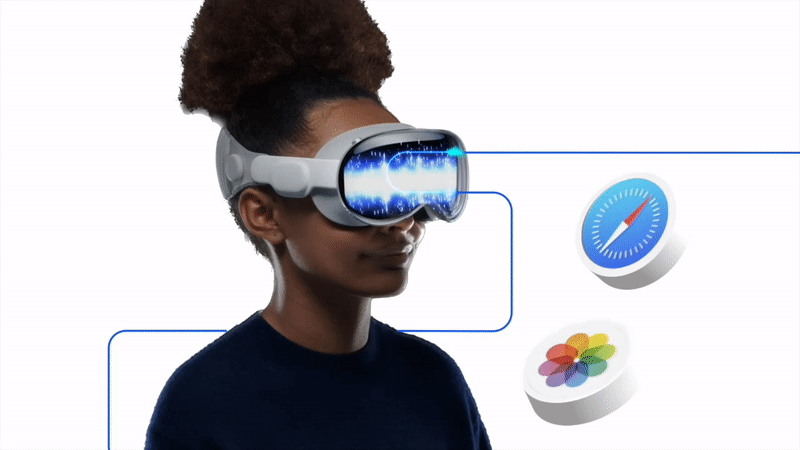Interview
The average learner doesn’t drop out because the content is poor. They drop out because their mind is exhausted before the learning even begins.
This quiet erosion of focus, of motivation, of mental clarity is not a glitch. It’s the result of systems that prioritize content delivery while ignoring cognitive capacity. Denise Duchow, VP of Efficiency at Mokhtar Group and Managing Director at Go To Elearning, has been confronting this problem for over a decade.
Together with a team of psychologists, instructional designers, and field educators, she helped design a new kind of learning infrastructure, one that supports the human brain, not just the curriculum. That system is now being unveiled as The Cognitive Edge™, a modular, white-labeled learning enhancement program launching on July 1, 2025.
In this interview, Duchow shares the inside story behind its creation and why its invisibility might be its greatest strength.
They know what they want learners to learn, but not how learners are actually capable of learning it in their current mental state.
Denise Duchow

CSA: Denise, let’s start at the root. Why did Mokhtar Group invest in something like The Cognitive Edge™?
We believe that cognitive integrity is the missing link in most learning systems. The issue isn’t that learners don’t care or that educators aren’t trying. It’s that platforms, programs, and institutions have been over-optimized for delivery and under-optimized for processing.
When learners disengage, we often blame the curriculum. But more often, it’s the learner’s internal system that’s been overloaded. We observed this repeatedly, especially among adult professionals, Foreign language learners, and individuals returning to education after extended breaks. Their minds weren’t ready to receive. That’s what led us to ask a different question: What if we stopped building more content and started building cognitive infrastructure? That’s what The Cognitive Edge™ is.
CSA: The program is grounded in learning theory and psychology. What shaped its design most heavily?
There were a few guiding pillars. One is Cognitive Load Theory, which looks at how information overload shuts down meaningful learning. Another is Self-Regulated Learning, which is about giving learners tools to manage their own mental and emotional processes. And of course, we were deeply influenced by research around executive function, attention span dynamics, and dopamine regulation in digital environments.
But theories alone aren’t enough. The real strength came from who we brought in. We had practicing psychologists on the team—people who’ve worked with learners dealing with attention fatigue, anxiety, and emotional burnout. We had educators who’d taught in classrooms and led remote learning programs in the healthcare and corporate sectors. These were people who had to solve these problems in real time. We didn’t guess, we gathered field experience and built from there.
CSA: Why do you think this kind of cognitive foundation has been missing from most programs until now?
Because cognitive health isn’t visible. You can measure completion, test scores, and hours spent. But you can’t easily measure attention recovery, fatigue buildup, or silent frustration. So, platforms focus on what they can track.
Also, most course creators come from content, not cognition. They know what they want learners to learn, but not how learners are actually capable of learning it in their current mental state. That’s why we often see brilliant material fall flat. It’s not about the what. It’s about the when, how, and under what mental conditions it’s being consumed.
We designed The Cognitive Edge™ to fill that gap quietly. It doesn’t need to replace content. It supports it. It wraps around existing programs and helps the learner build the stamina, clarity, and habits to stay engaged and retain what matters.
CSA: Many programs try to brand themselves loudly. You’ve chosen a white-labeled, modular approach. Why?
Because real power doesn’t need to be flashy. We’re not trying to insert our logo into someone else’s learning system. We’re trying to make theirs stronger, cleaner, more effective, and entirely their own.
Every client gets a version of The Cognitive Edge™ that is built specifically for them. Branded in their tone, voice, and visual identity. We even register each package under a Library of Congress copyright certificate issued in their organization’s name. It’s fully owned. Fully protected. And completely theirs.
That’s important, especially for serious education companies, medical institutions, and corporate training teams. They want the benefits of research-backed tools, but they also want control. We give them both.
CSA: What kinds of learners or industries benefit most from this program?
We originally built it with adult learners and ESL populations in mind, because they were the ones most consistently falling through the cracks. But it expanded quickly into healthcare, onboarding, compliance, and continuing education contexts.
If your learners are professionals, caregivers, or employees with a lot on their minds, this program helps. If you’ve seen a drop-off after the first two modules of your course, this helps. If your learners say they’re overwhelmed but can’t articulate why, this helps. It’s especially effective in environments where learners are autonomous, juggling work and learning, and don’t have a teacher holding their hand.
CSA: The launch is scheduled for July 1, 2025. What should clients expect at that point?
We’re opening the door to custom partnerships. Clients won’t receive a fixed product. They’ll go through a brief intake process, where we assess their learner profile, content structure, brand tone, and platform format. From there, we assemble a bespoke version of the program, selecting and tailoring the modules that fit best.
The starting suite contains 24 core micro-courses, each grounded in psychology and learning science. But clients can add or remove modules. They can request narrative changes, pacing changes, integration features, and multilingual versions. Everything is adjustable. Pricing begins at $6,000, with staged development and installment plans. And every build is covered under a strict NDA, so the client is the sole face of the product. No third-party tags. No developer credits.
CSA: What’s your personal hope for how The Cognitive Edge™ will be used in the long term?
I hope it becomes invisible. I mean that sincerely. I hope people forget it’s even there, because it’s so well integrated into the learner’s experience. They just feel clearer. Sharper. More capable. They finish the course and think, “I actually stayed with it,” without needing to know why.
That’s the highest form of efficiency: building a system that strengthens everything it touches without needing recognition. That’s what Mokhtar Group was built for, and it’s what we’re delivering now.




